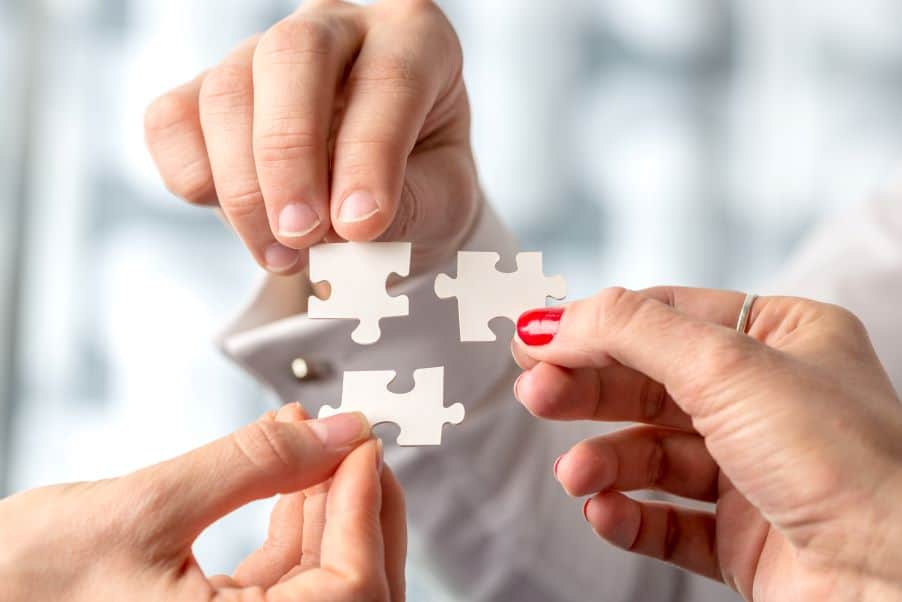The Selfish Epidemic: Why it’s Time to Infuse Kindness into Boundaries
Reading time: 10 minutes 1 second
A few years ago, while visiting a friend of mine in London just before Christmas, I was chatting with some of their friends over drinks. The conversation pivoted toward the subject of dating. At a certain point, somebody mentioned the term ‘ghosting’.
Ghosting is the practice of cutting off all contact with someone without any conversation, reason, or discussion. It’s something that happens quite a lot in the early phase of online dating. It can also be experienced in friendships, at work, or at school. And it can have a devastating impact on the recipient.
Two of them, Clare and Ray looked at each other and the rest of us noticed. Clare asked “Do you want to share?” and so Ray began to explain.
Ray lived with his fiancée in a flat in London. She was originally from Australia and had been living in the UK for 12 years or so. She was a fitness instructor. Together for eight years, they had recently gotten engaged and while they had not set a date yet, they were planning to nail it down in the new year.
Three weeks ago, Ray came home from work and the apartment looked radically different. Everything his fiancée owned was gone. He called her phone and the phone was no longer in service. We peppered him with all of the questions: “Were there any signs?” “Did you have a big fight?” “Did she leave a note?” No. No. No.
There was no explanation. No reasoning. It was completely out of the blue. A couple of days later, a mutual friend of theirs did some digging and found out that Ray’s fiancée had moved in with another guy from her work and was now in a relationship with him. When that same friend confronted her about it, her response was “Ray’s response is not my responsibility. I need to maintain my boundaries and my emotional health. I did what I needed to do”.
THE NEED FOR BOUNDARIES
On a recent Changing Minds podcast episode, I waded into the world of ghosting, but for now, I want to talk about ‘boundaries’. I believe there is a fundamental problem in the way many people think about boundaries and it is having a detrimental effect on our lives. We need this to change.
The term ‘boundaries’ can be defined as limits and rules we set for ourselves within relationships and interactions to protect our sense of personal identity and well-being. It was probably during the co-dependency movement of the 1980s and 1990s that this concept became popularized.
In 1992, Dr Henry Cloud and John Townsend released a book called “Boundaries: When to Say Yes, How to Say No to Take Control of Your Life.” Soon, it seemed almost as if every pop psychology guru was warning us to create boundaries and maintain these boundaries so that we weren’t taken advantage of and so that we could enjoy healthy relationships.
It made sense. Indeed, it offered us a technique that we could implement to no longer find ourselves walked all over by others. It provided us with a way to get what we want in our personal and professional relationships. What we deserved. It reduced resentment and gave us more agency in the interactions we had with others.
Somewhere along the way, however, a problem emerged.
“Boundaries” became a weapon that some people used in order to do whatever they wanted to do. They became the excuse people used, to avoid being seen as selfish when they were, in fact, being selfish. They actually increased resentment and encouraged more people to see themselves as victims.
THE HIJACKING OF BOUNDARIES
How did this happen?
Like any tool that can be used for good or bad, setting boundaries, as a technique, became hijacked by those who wanted to control others.
The ‘victimhood mentality’ somehow became quite popular in self-help circles. The reason why you are feeling the way you do is because you are a victim. A victim of society or of the system or your parents or your partner. It’s not your fault. It’s theirs.
Over the last few years, this mentality wasn’t all bad. Indeed, disenfranchised groups and those who have gotten a rough deal from their circumstances have rebelled as the victims of the patriarchy, toxic masculinity, or predatory behavior (The Me Too Movement).
The thing is, such movements are legitimate. If you look at what women have had to deal with for far too long (and still have to put up with), it’s wrong. They have been the victims. Black people have been the victims for far too long. Muslims. Jews. Asians. Those with a different sexual orientation or gender. Minority groups have been discriminated against and continue to be discriminated against. This is wrong. They are indeed the victims.
And yet this notion too has been hijacked. Disagreeing with someone or pushing back has been transformed into abuse. Using the wrong word has become synonymous with an attack. With victims there comes a vilification of the other side and if you don’t capitulate you are guilty, guilty, guilty. At a societal level, cancel culture aims to destroy your life if the mob feels like you said or did something that they disagree with.
Presenting yourself as a victim when that is true can be useful when it gets people to make change happen. It’s not so useful, however, when you cultivate a victimhood mentality. This disempowers you and puts the responsibility on everyone else to behave how you think they should. This is problematic.
Like most problems, it’s tricky to solve this one. Because there happens to be a benevolent intention behind cancel culture. We need to help the victims and let people know it’s not okay to victimize them. The problem is that often what happens is more victims are created.
Here’s where we return to boundaries.
WE ARE VICTIMS
The ‘victimhood mentality’ absolves us of all responsibility to take action. You must be the one to change. At an interpersonal level, my boundaries become my way of controlling you. The boundaries once used to protect me are now used to hem you in. And if you protest, I can always say you are doing so because you don’t respect me. I’m ghosting you because it’s the only way you’d let me leave you without feeling bad.
So here’s my point: While boundary setting (and maintaining) is an important skill to learn, it is important that we learn to do this in a way that promotes pro-social behavior. We need to set boundaries while staying kind, thoughtful, and generous.
Examples like Ray’s story above absolve the person of all responsibility to treat other people well. I must care for myself so therefore I don’t need to care for anyone else.
The need for boundaries is certainly there. When you become too dependent on another person, that’s not healthy. Your happiness becomes tied to their happiness. You can be controlled and manipulated. If someone becomes too dependent on you, the same things occur. This is what is known as being co-dependent. Boundaries can help solve this problem.
Another issue is not just dependency, but you being controlled or walked all over by others. When you allow yourself to be a doormat, not only will you lose respect, but you will constantly find yourself giving while those around you take, take, take.
HOW BOUNDARIES HELP US
Psychological health requires a sense of autonomy where you are your own person and take responsibility for your behaviors and feelings. It requires the ability to stand up for yourself and assert your own needs and perspective. Once more, this is where our friend ‘boundaries’ comes in as extremely helpful.
We set boundaries because they allow other people to know what we will and what we won’t accept. We assert our autonomy and independence. We stand up for ourselves. In dating and relationships, it is the same. If you set boundaries early on in a relationship, the other person is more likely to respect you. You also become more desirable to them when you demonstrate boundaries. It exudes confidence and scarcity which both have been shown to improve our attractiveness.
At work, as well, you may set boundaries with your boss. You will not return calls after 8pm for instance. You will not work weekends. You will not allow them to shout at you. These are rules that you are setting to make sure that the relationship you have with them is clear and you feel good about it.
Once we have set the boundary, we then need to maintain it. It’s important that if you tell your partner that you will not accept them speaking to you in a certain way… you’re prepared to follow up. If they start doing it, you must instantly cut it out. When you set a rule, it must be enforced.
So, boundaries are wonderful. Except, as we learned from poor Ray, not always. For years, we’ve heard influencers focus on empowering us. Self-care has been championed. The idea is that for far too long, so many people have allowed themselves to be steamrolled by others. We need to be strong. We need to stand up. We need to be a boss.
Great. Except when we take it too far.
I know people who use boundaries for every excuse. They will cancel plans at the very last minute without apology. “I don’t have the energy”. They will refuse to help a friend in need. “I have to look after myself”. They will let a family member down. “I need to put myself first”. While each of these excuses in the right contexts can all serve as good reasons, here’s the problem:
Our selfishness masquerades as our boundaries.
WE ARE ALL ONE
Many years ago, near in Amazon Jungle in the hills of Quito, Ecuador, I joined an ayahuasca ceremony with a group of shamans who invited me. During the experience, I finally understood what I had heard mentioned by guru after guru, time after time: ‘We are all one’.
Experiencing psychedelics has a common effect of diminishing your sense of self. You cease feeling like a particular individual and you realize that we are all particles vibrating, all connected. You are every living thing. You are the universe and the universe is you. Neurologically speaking, what’s happening is that is the reduced activation in what is known as the Default Mode Network (DMN) of the brain.
The Default Mode Network is the network activated in our brain whenever our minds are wandering and we are at rest. During this activation, we find ourselves thinking a lot about ourselves, our lives, our status, and our stories. It also happens to be where most of our anxiety, depression, and stressful thoughts occur.
One of the beautiful parts of a psychedelic experience is not just the freedom from these self-narratives that can make us anxious and depressed but it is that it makes us feel closer to other people. We feel more deeply connected to humans.
PLAYING WELL WITH OTHERS
Certainly in the individualistic western world that many of us live in, we are far too self-absorbed. And self-absorption is one thing but selfishness is another. We must be better at playing well with others.
An article I wrote a few years ago placed me on the very first page of search results on Google for the word ‘niceness’. The actual article discussed the difference between ‘niceness’ and ‘kindness’. One of the arguments I try and make in distinguishing between these two is that niceness is about you coming across as likable. Kindness is about making the other person feel good. Kindness is for them. Niceness is for you.
When we set boundaries, a good way to think about things is to also think about the other person’s boundaries. How can we be kind to them? What is the way to show respect to them? Or to care for them? Or to be good to them? How can we set and maintain our boundaries while doing all of this?
Boundaries are so useful and helpful. We just need to be mindful when we are using them.
Here are some key practices that can help:
1. Reflect on yourself and what boundaries you need to set and maintain in your life. Where do you feel taken advantage of? What do you need others to stop doing that impacts you?
2. How will you communicate these boundaries to them? How can you do this in a kind way? What are their needs and how can you maintain these boundaries in a way that minimizes their hurt?
3. What boundaries might others need that they aren’t setting? How can you respect them more and take them less for granted?
4. When people test your boundaries how can you stay firm yet stay kind?
SIGNALLING VIRTUE, THE RIGHT WAY
In the world today, I see many people who spend a lot of time virtue signaling. They share their opinions to show how good a person they are. I’ve always believed that actions speak louder than words in most cases. To me, the more we can virtue signal by what we do and how we treat others the better off we will be. Boundaries are so helpful but only when we use them for the right reasons. We must stand up for the oppressed and help them stand up for themselves. But this does not mean any of us let go of responsibility. We must all seek to become the heroes of our own lives.
The easiest thing to do is to see people like Ray’s ex-fiancée as being horribly selfish. Yet she told herself a story that made her behavior okay. We all have this potential inside of us. We can all justify our actions by speaking of why we need to prioritize ourselves. But this is a false choice.
The key is to remember that prioritizing yourself doesn’t mean to ignore everyone else. Instead, remember, at some level, we are everyone else so be kind.
Yes, self-care more.
Also, care more.
Cheers,
Owen.
P.S. ‘Self-delusion: Why we lie to ourselves and believe what we want’ is my latest podcast episode – you can watch and listen to it here.





